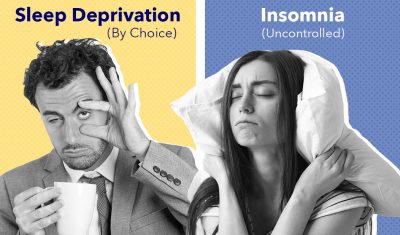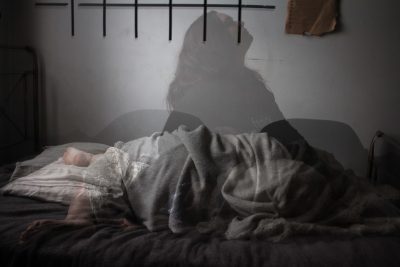You can count on two (okay, four) hands how many treatments you’ve tried for insomnia. Sleep hygiene, cognitive behavioral therapy, a slew of medications and natural remedies — the list goes on, and you still toss and turn at night. But NYC clinical psychologist Dr. Samantha Gaies specializes in the one research-backed treatment you probably haven’t tried. Hypnosis.
If you’re thinking, “Hypnosis won’t solve my struggles with sleep,” join me as I chat with Dr. Gaies of NY Health Hypnosis and Integrative Therapy about the trouble with “shoulds,” letting go, and why targeting your unconscious could be your key to slumber success.
You have extensive training as a psychologist. At what point in your education did you become interested in hypnosis?
I learned about the power of hypnosis in graduate school after watching a video of a woman giving birth using only hypnosis to tolerate the pain. As a result of that and my interest in the way the mind affects the body and vice versa, I began learning more about how hypnosis and mindfulness can positively impact a person’s mental and physical experiences. As I incorporated hypnosis and mindfulness into my work, I saw tangible results in my patients. These techniques have become the foundation of my work.

Insomnia treatment is evolving away from medications and toward the cognitive behavioral therapy for insomnia protocol (CBT-I). Where does hypnosis fit in? In your experience, does CBT-I have a better chance of success when hypnosis is included as part of the therapy?
CBT-I is extremely helpful for many patients, but some need additional techniques like hypnosis to help them combat insomnia. Whereas CBT-I attends to the more conscious aspects of sleeplessness, hypnosis targets some of the underlying and often unconscious causes of insomnia.
Patients usually come to me when there are no acute anxieties or stressors that they can pinpoint as the cause of their problems with sleep. By using hypnosis, we’re able to uncover unconscious explanations that are harder to identify using more traditional therapy. Patients are able to fully let go and relax during hypnosis, which can allow them to sleep more soundly on their own.
Do most of your insomnia patients turn to hypnosis after other treatments have failed?
Absolutely. My patients have typically tried many other avenues including medications, other types of psychotherapy, herbal remedies, holistic approaches, etc. They’re often frustrated and feel defeated, but hold out hope that hypnosis will be different. And more often than not, they’re right! Many things can help people improve their sleep, though from my experience, a blend of CBT-I, mindfulness, and hypnosis is usually the key to success. I only wish people came to me before trying so many other less effective methods.

How does acceptance and commitment therapy (ACT) work when applied to sleep disorders?
One of the biggest obstacles I face with patients is their desire for things to “go back to normal.” It’s this resistance to their current reality that creates more sleep anxiety and increases the severity of their insomnia. I use ACT techniques to help patients make space for frustrations and disappointments about sleep. Suppressing or ignoring these thoughts and emotions gives them more power. By incorporating mindfulness and ACT techniques, my patients feel less burdened by their insomnia.
Carl Rogers’ well-known quote captures this sentiment well: “The curious paradox is that when I can accept myself just as I am, then I can change.” Once people accept insomnia and realize it’s a momentary state rather than a personal trait, their belief in their ability to make long-lasting changes shifts immeasurably.
What do you wish everyone knew about sleep?
The more you try to sleep, the less likely it is that you’ll fall asleep or stay asleep. The best way to combat insomnia is to let go of what “should” happen when you get into bed, and instead, focus on the present moment. Check in on what your mind and body need and can tolerate in that moment. Restful sleep comes when patients let go of what they’ve always thought would or should work. When they open up to mindfulness, acceptance, and hypnosis techniques, their conscious and unconscious thoughts can make the shift that allows for peaceful sleep.
A big thank you to Dr. Gaies for a fascinating discussion! To learn more about her practice and about hypnosis for insomnia, check out her website.

